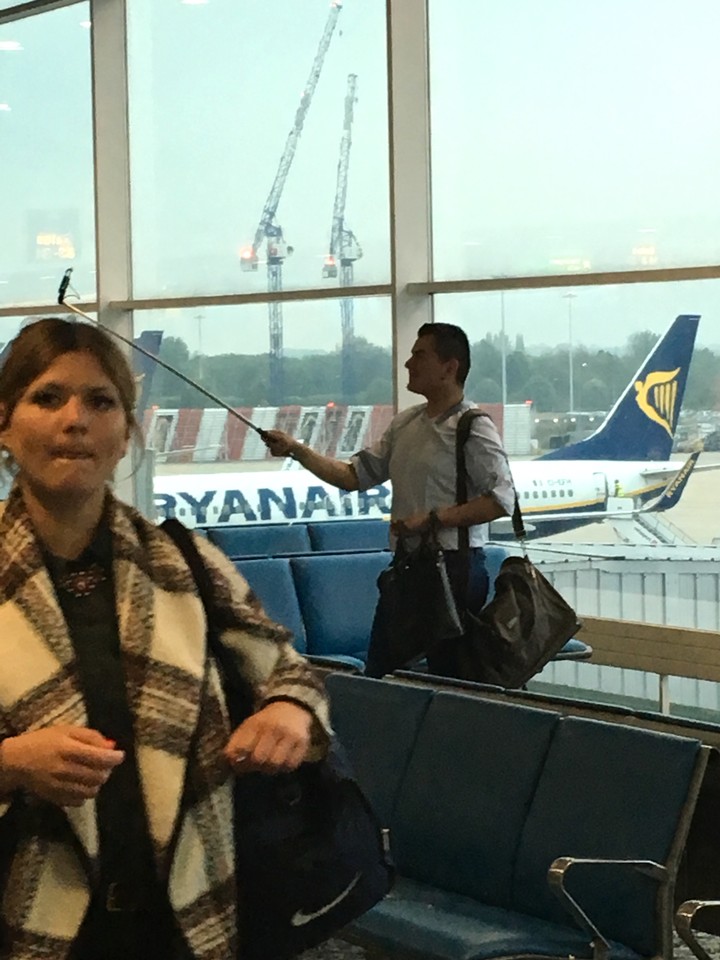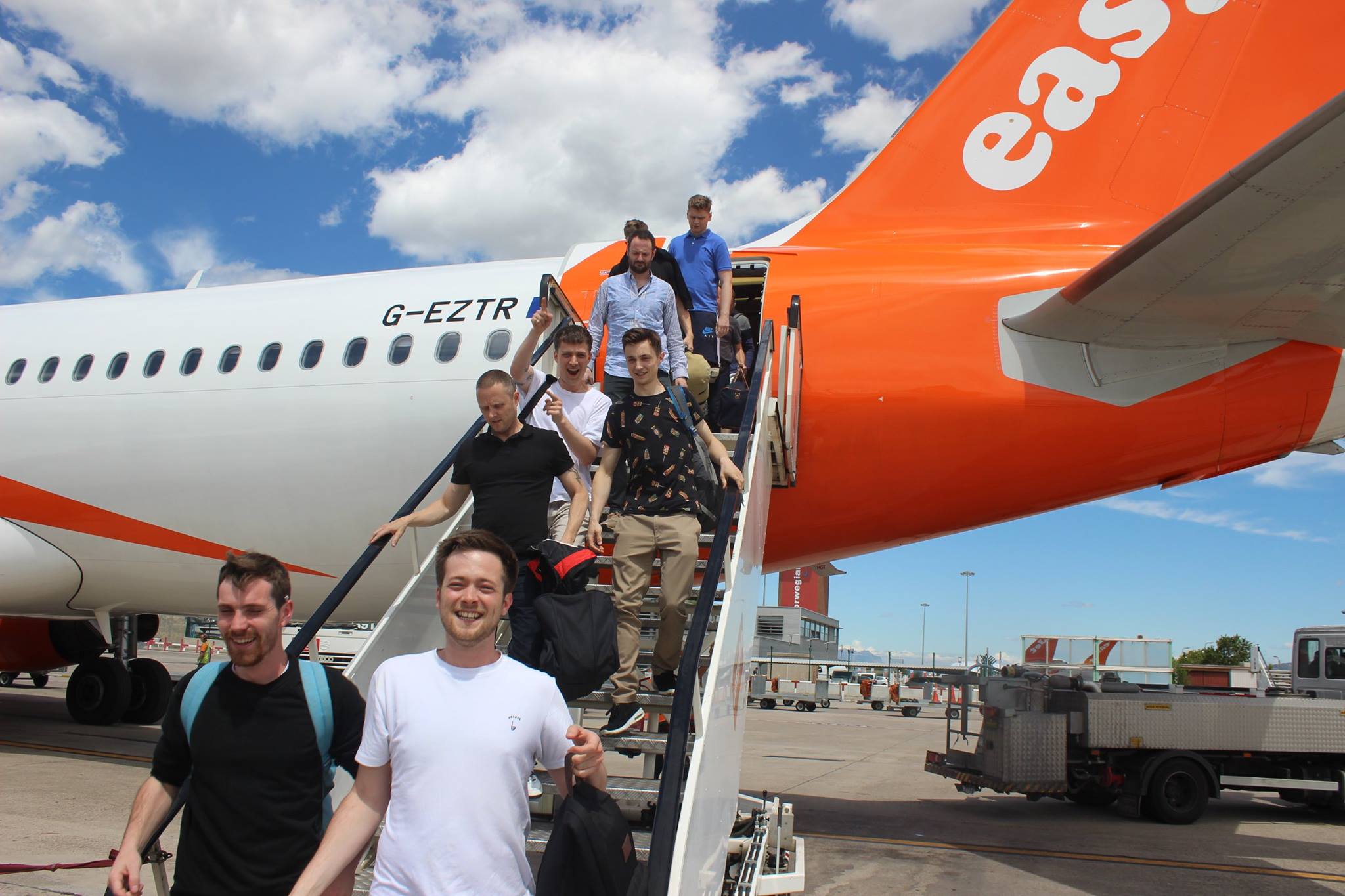Campaign groups reckon that if plane fuel was taxed properly, it could help to reverse the cuts to legal aid, disability benefits, employ 5,000 more nurses and build ten new hospitals every year.

Photo: Jamie Clifton
In the middle of the Polish plains, about 200km southwest of Warsaw, sits the sprawling hulk of the Belchatow Power Station. Everything about the Belchatow is dirty, from the slag heaps of the strip mine that supplies it, to the low-grade brown coal that burns in its furnaces, to the noxious fumes pumping out of its 300m high smoke stacks.
This monstrosity is Europe’s largest fossil-fuel-powered plant, so it’ll come as no surprise to learn that it topped the annual list of the continent’s worst carbon emitters published by the EU Emissions Trading System last month. It’s a dubious honour that the Belchatow has held almost continuously for the last decade, ahead of a slew of other coal-fired power plants you’ve probably never heard of.
This year, however, for the first time, a more familiar name crept into this toxic top ten: Ryanair.
“When it comes to the climate,” said Andrew Murphy, Aviation Manager at the NGO Transport & Environment, in comments that were widely reported at the time, “Ryanair is the new coal.”
Of course, the fact that flying is bad for the planet is not exactly news to anyone. But to have cheap aviation’s main proponent jostling for space with the Belchatow in the carbon emissions hall of shame definitely helps drive the point home with a new, and welcome, urgency.
Because let’s be honest: for too long, a lot of people (myself included) have treated flying like a permissible, if guilty, pleasure. You separate out your recycling; you avoid fast fashion; you cut out meat or go vegan; you sign your flatmates up to an energy company that only uses renewables – and then your friend books a stag-do in Bratislava, or a festival on the Croatian coast, and you jump on a plane without a second thought.

Millennials are meant to be a politically engaged lot, but we’re also (as the advertising slogan has it) “Generation EasyJet” – we’ve grown up with the idea that beach holidays to the south of Spain or long weekends in Lisbon are the norm.
And yet, flying should never have become this cheap. Over the years, the industry has benefited from enormous tax breaks that have skewed the playing field, giving it a competitive edge over cleaner forms of transportation. You still have to pay VAT on ferry tickets, for example, but airfares remain exempt. Most crucially – unlike almost every other type of transportation – there is no tax on international aviation fuel.
It’s a convention that dates back to an agreement signed in Chicago in 1944 – but despite being 75 years out of date it hasn’t been revisited since. According to the campaign group A Free Ride, these tax breaks add up to some £11.4 billion a year – effectively a huge subsidy, with the benefits disproportionately passed on to the wealthy, who tend to fly more.
On top of this, despite the fact it’s the fastest-growing source of carbon emissions, aviation enjoys a privileged position when it comes to carbon quotas. Currently, flying accounts for around 2 percent of global emissions, according to Dr Kevin Anderson, Professor of Energy and Climate Change at Manchester University. But this figure is set to rise rapidly – both in real terms and as a proportion of “permissible” emissions.
Dr Anderson and his colleagues have looked closely at the UK’s commitments under the Paris Agreement, “and if you look at the Department for Transport estimates for aviation emissions, they take up about one third of the total”.
While other sectors are forced to cut, “they will be allowed to expand their emissions”, says Dr Anderson. “Schools, hospitals, everything else will have to make massive reductions, which are going to be challenging anyway, but they’ll be much more challenging for having to compensate because of privileging the aviation sector.”
If the idea of vital public services having to pick up the slack for the airline industry already sounds galling, then it gets worse: A Free Ride estimates that if you scrapped that £11.4 billion tax break that the sector currently enjoys, you could “reverse the cuts to legal aid, disability benefits and buses, scrap tuition fees, employ 5,000 more nurses and build ten new hospitals every year”.
Of course, when totting up the real cost of flying, there are distinctions to be drawn between how, where and why people fly. “I think we have to be very careful that when we try to respond to climate change, we do it in an equitable way,” says Dr Anderson. “We don’t want to just stop ‘normal’ people, or average-and-low-income people, from taking a one-off flight.” The problem, he explains, “is frequent fliers”.
Statistics suggest that around 15 percent of the population currently take around 70 percent of the flights. But these frequent fliers tend to be responsible for an even higher percentage of emissions, because they’re more likely to fly first or business class. As Nuala Lam, a spokesperson for Extinction Rebellion, explains, “The carbon footprint of flying business or first is obviously much larger, because you take up so much more room on the plane.”
In fact, Ryanair themselves are fond of claiming that because they pack people in and optimise fuel efficiency, they are “Europe’s cleanest, greenest airline”. But just because Emirates’ palatial “suites” are more likely to cost the earth (both literally and figuratively), it doesn’t follow that their cattle class seats are good for the planet. As Dr Anderson explains: “The climate doesn’t care about efficiency. All the climate cares about is the number of CO2 molecules in the atmosphere, and what we see with Ryanair is that [regardless of their efficiency] their emissions are going up.”
Or, as Nuala Lam puts it: “In terms of being the greenest airline, so what? No airline is green enough.” But how do you prevent people flying so much when the flights are so cheap? How do we wean ourselves off them when there’s a whole generation who have grown up with the idea that the Balearics or Barcelona are basically our backyard?
Governments, of course, could act. Taxing aviation fuel would be a start for any administration serious about tackling climate change – an easy and open goal if ever there was one. Legislators have long hidden behind the Chicago Convention as a reason not to change the rules, but independent legal advice published in February by Transport and Environment suggests that this is (and I paraphrase a bit here) bullshit.
Then there’s the suggestion – supported by Dr Anderson, among others – of a government-imposed “frequent flyer levy”. “I would keep it quite simple,” he explains. “Your first flight would be the price of the flight. Your second flight would be twice the price of the flight. Your third one would be four times, your fourth one, eight times, your fifth, 16, and so on.”
“That would stop the frequent fliers within the year. But it would not stop the ‘normal’ people looking to go on holiday occasionally.”
As well as legislation, reducing aviation’s impact also requires those of us who use it to take responsibility (as a travel journalist I’m far more guilty than most), and cut out flights whenever and wherever we can. “It’s not to say we can’t travel,” says Dr Anderson. “I haven’t flown since 2004, but I still travel. I take the train, or go by boat. I don’t go so often, but when I do I go for longer.” Making the change might feel difficult, but what alternative do we have?
Ryanair has always relied on the fact that however annoying their baggage charges, select-a-seat “upgrades” and scratchcard adverts get, the cost of the actual ticket will keep people clicking. But there’s one hidden charge, one enormous extra cost, that they don’t tell you about. One we won’t realise we’ve incurred until it’s too late.
Last November, a group of Greenpeace activists climbed the Belchatow Power Plant to protest its continued operation. They were well-equipped and well-prepared, but after just 40 hours they were forced to retreat. It wasn’t the authorities or the threat of arrest that stopped them, but the levels of nitrogen and sulphur oxide pouring out of the smokestacks. In that short space of time they had, according to Greenpeace, reached “critical levels” – the air was so filthy that just being there was no longer safe. This is the poisonous environmental company that Ryanair now finds itself in. Worth thinking about next time you find your cursor hovering over that cheap flight to Berlin.